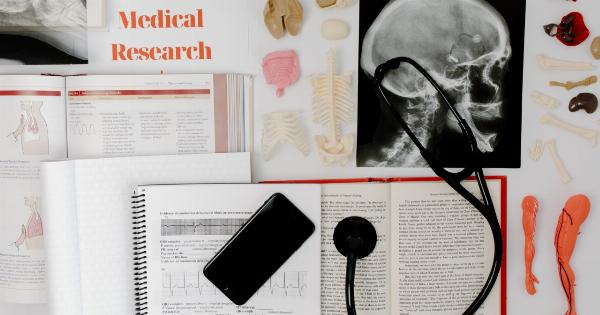Osteoporosis is a condition that weakens bones, making them fragile and more prone to fractures. It can affect various parts of the body, including the lungs.
While medical treatments and therapies are available to manage osteoporosis, there are also several natural remedies that can help strengthen bones and lungs, reducing the risk of fractures and improving overall respiratory health. In this article, we will explore some of these natural remedies and lifestyle changes that can play a significant role in preventing and managing osteoporosis.
1. Vitamin D
Vitamin D is essential for maintaining healthy bones and lungs. It helps in the absorption of calcium and phosphorus, which are vital for bone strength. Sunlight is the best natural source of vitamin D.
Spending 10 to 15 minutes under the sun, preferably in the morning, can provide you with enough vitamin D. Additionally, including foods rich in vitamin D in your diet, such as fatty fish, egg yolks, and fortified dairy products, can also help in strengthening your bones and lungs.
2. Calcium
Calcium plays a crucial role in bone health. It is the primary mineral responsible for maintaining bone strength. Including calcium-rich foods in your diet can help prevent osteoporosis and strengthen bones.
Dairy products like milk, cheese, and yogurt are excellent sources of calcium. Additionally, green leafy vegetables, almonds, and sesame seeds also contain high levels of calcium. It is important to note that calcium intake should be accompanied by an adequate intake of vitamin D for optimal absorption and utilization.
3. Magnesium
Magnesium is another mineral that is essential for bone health. It helps in the absorption and metabolism of calcium. Good sources of magnesium include whole grains, nuts, seeds, legumes, and dark chocolate.
Consuming a diet rich in magnesium can help strengthen bones and prevent osteoporosis.
4. Vitamin K
Vitamin K is involved in the production of proteins required for bone formation. It helps in maintaining bone density and reducing the risk of fractures.
Including foods rich in vitamin K, such as leafy greens (spinach, kale, broccoli), Brussels sprouts, and parsley, can contribute to stronger bones and lungs.
5. Exercise Regularly
Engaging in regular physical activity is crucial for maintaining bone density and lung health. Weight-bearing exercises, such as walking, running, dancing, and lifting weights, help stimulate bone growth and strengthen muscles.
Additionally, aerobic exercises and deep breathing exercises can improve lung capacity and overall respiratory function, reducing the risk of lung-related complications associated with osteoporosis.
6. Quit Smoking
Smoking damages the lungs and increases the risk of developing osteoporosis. The chemicals in cigarettes can accelerate bone loss and weaken the bones.
Quitting smoking is one of the most important steps in preventing further damage to the lungs and bones. Seek support from healthcare professionals or support groups if needed.
7. Reduce Alcohol Consumption
Excessive alcohol consumption negatively affects bone health and increases the risk of fractures. Limiting alcohol intake can help preserve bone density and improve overall health.
It is advised to limit alcohol consumption to moderate levels, which means up to one drink per day for women and up to two drinks per day for men.
8. Incorporate Weight-Bearing Exercises
In addition to regular exercise, specific weight-bearing exercises can help strengthen bones and improve lung function. Some of the effective weight-bearing exercises include jogging, brisk walking, dancing, hiking, and stair climbing.
These activities apply stress to the bones, promoting bone density and reducing the risk of fractures.
9. Consume Omega-3 Fatty Acids
Omega-3 fatty acids have anti-inflammatory properties and can help in reducing the risk of osteoporosis. They also contribute to better lung function.
Foods rich in omega-3 fatty acids include fatty fish (salmon, mackerel, sardines), chia seeds, flaxseeds, and walnuts. Including these foods in your diet can provide the necessary omega-3 fatty acids for bone and lung health.
10. Manage Stress
Chronic stress can negatively impact bone density and overall health. High-stress levels can lead to an increase in the production of stress hormones, which can contribute to bone loss.
Engaging in stress-reducing activities, such as meditation, yoga, deep breathing exercises, and hobbies, can help manage stress levels. Prioritizing self-care and relaxation can have a positive impact on bone and lung health.































